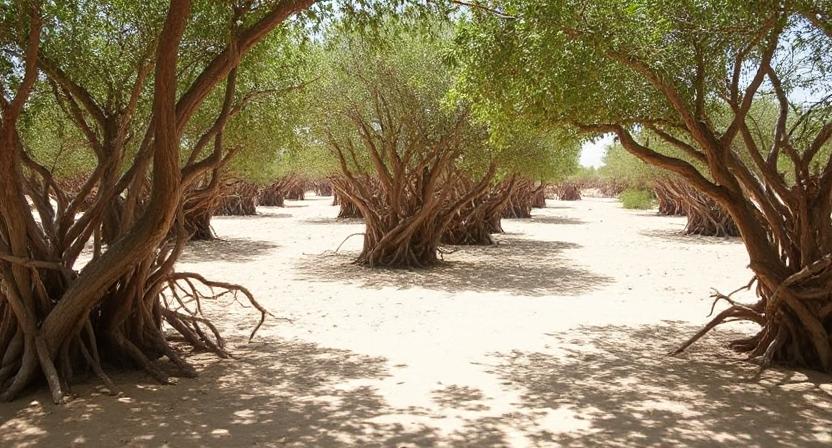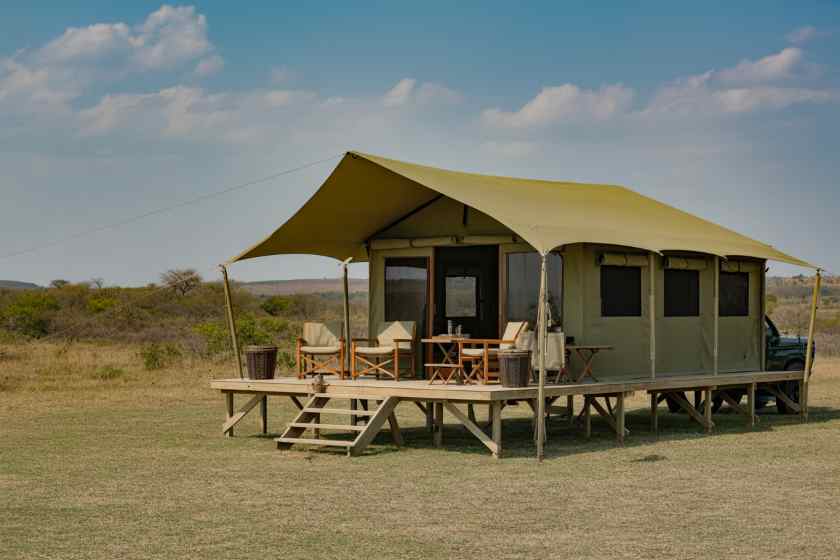Al-Qula’an, Eco-Village in Egypt Promotes New Community-Led Eco-Tourism to Protect its Mangrove Coastlines and Fostering a Sustainable Ecosystem

Located in the beautiful Wadi El Gemal nature reserve along Egypt’s Red Sea coast, Al-Qula’an, an Ababda-managed eco-village, is providing an effective model of community-based eco-tourism. Through its shift from a subsistence fishing-based community to eco-tourism, the village is helping safeguard its delicate mangrove habitats while providing travelers with a rich cultural, environmentally friendly travel experience. Al-Qula’an’s innovative blend of traditional practice and contemporary eco-tourism principles raises the standard for sustainable tourism worldwide, demonstrating how tourism development can harmoniously exist alongside environmental protection.
Transforming the Village: From Fishing to Eco-Tourism
Al-Qula’an has made a transformational shift from traditional subsistence fishing to community-based eco-tourism, aligning local economic needs with environmental protection. Once dependent on fishing for livelihood, the village now embraces eco-tourism as a way to create long-term economic stability while conserving the sensitive ecosystems surrounding the mangrove coastlines.
The village’s transition has involved engaging locals in tourism management, where traditional knowledge of the region’s ecosystems plays a key role in maintaining a balance between economic activity and ecological preservation. This strategy benefits both the Ababda community and the environment, proving that sustainable practices can serve as a strong alternative to more destructive development models.
Preserving Mangroves and Marine Life
One of Al-Qula’an’s key environmental focuses is the preservation of its mangrove ecosystems, which serve as essential nursery habitats for marine life and nesting sites for endangered sea turtles. Mangroves are vital for maintaining biodiversity in the region and act as a natural barrier against coastal erosion. The tourism model emphasizes visitor education about the importance of these coastal ecosystems and how responsible eco-tourism can directly contribute to their conservation.
Through sustainable tourism practices, the village helps maintain these critical habitats while also educating visitors on the importance of preserving natural sites, ensuring that tourism development enhances rather than exploits the region’s delicate environments. Marine life benefits from the protection of the mangroves, and initiatives such as these can be extended to other coastal regions in Egypt and beyond, where eco-tourism becomes a tool for marine conservation.
The Role of Solar Power and Desalination in Sustainable Practices
In line with Al-Qula’an’s commitment to sustainability, the village implemented solar power and desalination technology in 2018 to power small-scale tourism facilities. By harnessing renewable energy and providing clean water through desalination, the village minimizes its reliance on external resources, reducing its environmental footprint and ensuring a sustainable infrastructure for the future.
These efforts are part of the broader eco-tourism model that blends modern green technology with traditional practices. Solar panels and desalination systems not only reduce the village’s carbon footprint but also showcase the feasibility of integrating renewable resources into remote tourism operations, particularly in areas where access to conventional utilities is limited.
UNDP–Egyptian Red Sea Initiative: Broadening the Impact
Al-Qula’an’s eco-tourism success is also supported by the $14.25 million UNDP–Egyptian Red Sea Initiative, which launched in 2024. The initiative provides financial and technical support for community businesses in the Red Sea region through 2030, with a focus on reducing pressure for large-scale, high-impact developments in the area.
Through the UNDP initiative, the village receives continued support in business development, environmental education, and tourism infrastructure, empowering the Ababda community to expand their eco-tourism efforts while protecting the surrounding environment. This program provides a sustainable growth framework, encouraging local communities to adopt eco-friendly practices and scale their businesses without sacrificing the integrity of the natural surroundings.
Sustainable Tourism vs. High-Impact Development
The UNDP initiative also serves as a counterpoint to proposals for high-impact developments in nearby sites, such as Ras Hankorab, which have been met with local opposition due to potential environmental and social impacts. Al-Qula’an’s eco-village model stands as a stark contrast to these proposals, showing how small-scale, community-driven initiatives can generate economic opportunities without compromising environmental integrity.
While large-scale resorts and developments may promise significant returns, they often come at the cost of local culture and natural landscapes. Al-Qula’an’s model provides a sustainable alternative, demonstrating that tourism can flourish when managed responsibly and with a focus on preserving the community’s cultural and ecological heritage.
Al-Qula’an and the Future of Eco-Tourism in Egypt
Al-Qula’an’s success is a testament to the power of community engagement and local stewardship in creating sustainable tourism models. By combining traditional knowledge with modern eco-tourism practices, the village has created a blueprint for other communities in Egypt and around the world to follow. As global demand for eco-tourism continues to rise, Al-Qula’an serves as an example of how tourism can contribute to the local economy while protecting the environment.
The village is also an example of how cultural tourism and ecological preservation can coexist in a mutually beneficial relationship. Visitors not only experience the beauty of the Red Sea coastline and the mangroves but also gain a deeper understanding of the region’s cultural significance and environmental challenges. This intersection of cultural tourism and nature conservation could become a model for other protected areas across Egypt and the Middle East, where communities can use tourism to protect their heritage while generating income.
A Future Built on Sustainability and Community
Al-Qula’an keeps on developing as a prime eco-tourism spot, it shows that it is possible that economic growth and sustainability do not go hand in hand. The village has shown that it is possible for tourism to be a positive force with local knowledge, community participation, and stewardship of the environment, improving the lives of the residents while keeping nature’s beauty intact.
Looking to the future, Al-Qula’an is not only a success story in ecotourism—it is a model for sustainable rural development across the globe. By emphasizing cultural preservation and environmental protection, the village has demonstrated how tourism can provide a better, more sustainable future for both the local community and the industry as a whole.
The post Al-Qula’an, Eco-Village in Egypt Promotes New Community-Led Eco-Tourism to Protect its Mangrove Coastlines and Fostering a Sustainable Ecosystem appeared first on Travel And Tour World.